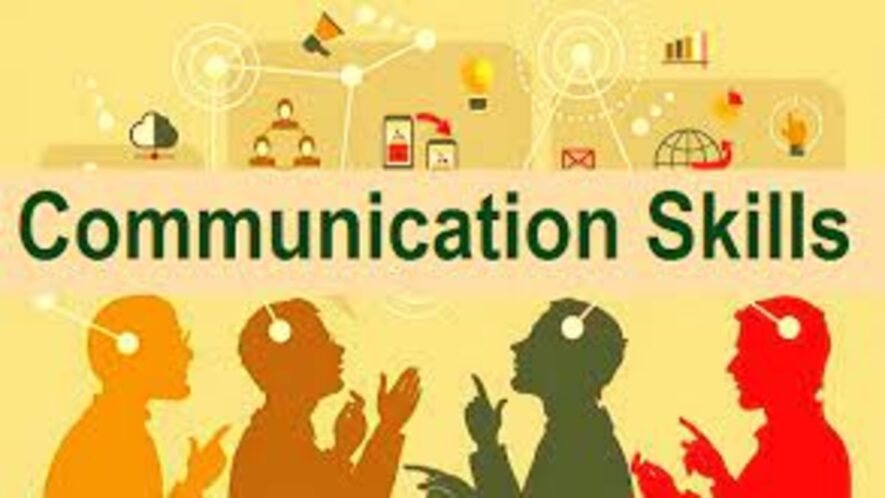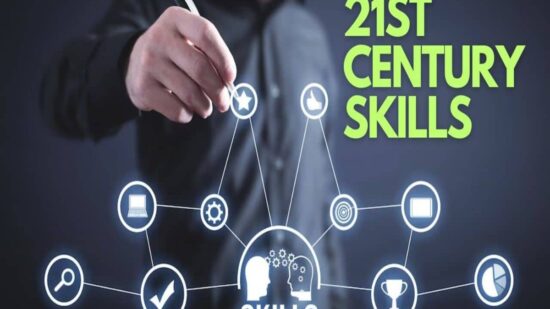1. Communication Skills
Communication skills are the abilities that enable individuals to effectively convey and receive information, ideas, and emotions with others. These skills are vital in both personal and professional contexts as they facilitate understanding, collaboration, and the building of relationships. Effective communication involves not only speaking and writing clearly but also listening actively and interpreting nonverbal cues.
2. Types of Communication Skills
2.1 Verbal Communication Skills
This refers to the use of spoken words to convey messages. Verbal conversation include clarity, coherence, tone of voice, vocabulary selection, and articulation.
2.2 Non-Verbal Communication Skills
Nonverbal way of expressing feelings involves the use of body language, facial expressions, gestures, eye contact, and posture to convey meaning. It complements verbal communication and can significantly impact how messages are interpreted.
2.3 Listening Skills
Listening skills are essential for effective conversation. Active listening involves paying attention, providing feedback, and demonstrating understanding. It helps to establish rapport, gather information accurately, and respond appropriately.
2.4 Written Skills
These skills involve the ability to express ideas, thoughts, and information clearly and concisely through written mediums such as emails, reports, letters, and memos. It includes proper grammar, organization, and formatting.
2.5 Interpersonal Skills
Interpersonal skills focus on interactions and relationships with others. These skills include empathy, emotional intelligence, conflict resolution, assertiveness, and the ability to build rapport and collaborate effectively.
3. Importance of Communication Skills
Effective communication is a lifelong learning process, and practice is key to improving and mastering these skills. By continuously developing your communication skills, you can enhance your personal and professional relationships and achieve greater success in various aspects of life. The importance of these skills in life can be observed in following ways.
3.1 Personal Development
Communication skills play a crucial role in personal growth. They enhance self-expression, self-confidence, and assertiveness. Good communication skills also facilitate learning by enabling individuals to seek clarification, ask questions, and engage in meaningful discussions.
3.2 Professional Success
In the workplace, strong skills of exchanging ideas are highly valued. They contribute to effective teamwork, leadership, customer service, and problem-solving. Clear communication helps avoid misunderstandings, enhances productivity, and promotes career growth.
3.3 Effective Relationship
Good communication skills are fundamental to building and maintaining healthy relationships. They enable individuals to express themselves, understand others, and resolve conflicts.
3.4 Collaboration and Teamwork
Effective communication fosters collaboration and cooperation among team members. It promotes the sharing of ideas, encourages active participation, and enhances the overall efficiency and effectiveness of a team.
3.5 Conflict Resolution
Strong communication skills are essential for managing conflicts and disagreements. It involves expressing concerns assertively, actively listening to others’ perspectives, and finding mutually agreeable solutions. Effective communication during conflicts helps to preserve relationships and foster a positive and collaborative environment.
3.6 Communication Channels
Communication can take place through various channels, including face-to-face conversations, phone calls, video conferences, emails, instant messaging, and social media platforms. Each channel has its own nuances, and being proficient in different communication channels is important in today’s digital age.
3.7 Clarity and Conciseness
Clear and concise communication is essential to ensure that messages are understood accurately. Using plain language, organizing thoughts logically, and avoiding jargon or ambiguous expressions contribute to effective communication. Being mindful of the recipient’s level of understanding and adjusting the communication accordingly is crucial.
3.8 Cultural Awareness
Effective communication requires sensitivity to cultural differences. Cultural norms, values, and communication styles can vary significantly across different regions and communities. Being aware of and adapting to cultural differences helps to avoid misunderstandings and promotes inclusive and respectful communication.
3.9 Active Communication Skills
Active communication involves actively engaging in the communication process rather than being passive. It includes asking questions, seeking clarification, paraphrasing, and summarizing to ensure mutual understanding. Active communication demonstrates interest, promotes dialogue, and minimizes miscommunication.
3.10 Feedback and Adaptability
Communication is a two-way process, and providing and receiving feedback is an important aspect of it. Constructive feedback helps individuals improve their conversational skills by identifying areas for improvement. Additionally, being adaptable and flexible in communication style and approach based on the needs of different individuals and situations enhances effectiveness.
3.11 Continuous Improvement
Communication skills can always be improved and refined. Actively seeking opportunities for learning, such as attending workshops, reading books on effective communication, or seeking feedback from trusted individuals, can help in enhancing skills of communication over time.
In short, communication skills encompass various abilities that facilitate effective interaction and understanding. They are vital for personal relationships, professional success, teamwork, and personal growth. Developing and honing these skills can greatly improve one’s overall communication effectiveness and contribute to success in various areas of life.
OTHER RELATED POSTS



